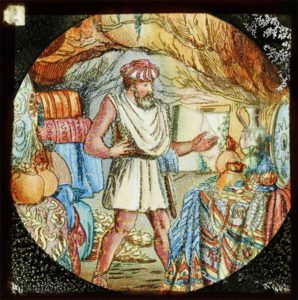 ” ‘Tis too much proved – that with devotion’s visage
” ‘Tis too much proved – that with devotion’s visage
And pious action we do sugar o’er the devil himself.”
Hamlet, act 3, sc. 1
Ali Baba had to deal with forty thieves. After the Charlie Hebdo attack, Paris dealt with forty heads of state. But while the thieves in the tale practiced thievery, the heads of state practice hypocrisy, on a scale worthy of the Arabian Nights. There they were, the governors of nations, the commanders of armies, the presiders of senates and rulers of cabinets.
In the instance, emotions conflict with logic. It seems unfeeling to separate the real tragedy of the Paris massacre from the Potemkin gathering of world leaders, and their sanctimonious display of unity and affliction.
Yet, unless we do, we indirectly accept the message of the mainstream media – whereby the show was sincere, rather than a politically-charged ostentation of righteousness, questionable sympathy, sour milk of human kindness, dubious concern about freedom of expression and, of course, terrorism.
For, not one of the thoughtful gurus of the politically correct, dared to remember the history of notorious false-flag operations – the Maine, Pearl Harbour, Gulf of Tonkin, September 11 (?) or the well-documented Northwood plan to bomb US government buildings and blame the Cubans.
Not one dared raise one perplexity, one question, one doubt. Nor there was an attempt at a historical reading of the context of the Charlie Hebdo crime. Or at any interpretations independent of the stereotype mill, and not produced by prejudice, and by extolling the virtues of a superior, conflicting with an inferior, civilization. Quite apart from the songs of praise, the Ciceronian eulogies and the holiday of encomiums.
But how can anyone doubt the sincerity of the subjects in question? The answer is simple.
“There is a history in all men’s lives,
Figuring the nature of the times deceased;
The which observed, a man may prophesy,
With a near aim, of the main chance of things
As yet not come to life…” (1)
In the instance, we are not even prophesying the future, but connect to the present the facts of the times deceased.
Hollande of France, involved in mass killings in Libya, the Middle East and French speaking Africa – the Prime Minister of Turkey, a country that holds a record in journalists’ imprisonment – the Foreign Minister from Egypt, where dissidents are condemned to death by the thousands (sic). The King of Jordan, who just condemned a journalist to 15 years in prison for criticizing the monarchy. And the Prime Minister of the Zionist state, who recently completed the successful assassination of 2000 people in Gaza, about 500 of whom children. Nor we should exclude the Saudi Arabian ambassador, whose country cuts limbs to thieves and heads to adulterers.
Let’s not lengthen the list, but only observe that most other participants belong to bombing-loving or torture-prone countries, whether out of natural inclination or as part of the “coalition of the willing”. And who believe that the Geneva convention only applies to Geneva.
Some forked tongues have even suggested that if Paris was worth a Mass for King Henry IV, it was certainly worth a trip for the heads of states and their entourages, maybe with a stop-over at Lafayette’s or the Bon Marchet.
All in all, the majestic march and parade of the heads of state and powerful notables remind us of Bertold Brecht’s opinion on the matter,
“When it comes to marching many do not know
That their enemy is marching at their head.
The voice which gives them their orders
Is their enemy’s voice and
The man who speaks of the enemy
Is the enemy himself.”
All that was missing was for each head of state to be accompanied by two priests, so that the mainstream media could write that he was,
“Not dallying with a brace of courtezans,
But meditating with two deep divines,
Not sleeping, to engross his idle body,
But praying, to enrich his watchful soul.” (2)
Without adding that King Lear himself, after some self-analysis reached similar conclusions.
K. LEAR Thou hast seen a farmer’s dog bark at a beggar?
GLOUCESTER Ay, sir.
K. LEAR And the creature run from the cur? There thou mightst behold the great image of authority: a dog’s obeyed in office.
(1) King Henry IV part 2
(2) King Richard III
In the play. Polonius tells Ophelia to read or pretend to read a book while waiting for the arrival of Hamlet. This is part of the scheme to find out what is really bothering Hamlet. The King, overhearing Polonius’ words to Ophelia, finds their dramatic relevance to his own actions.
